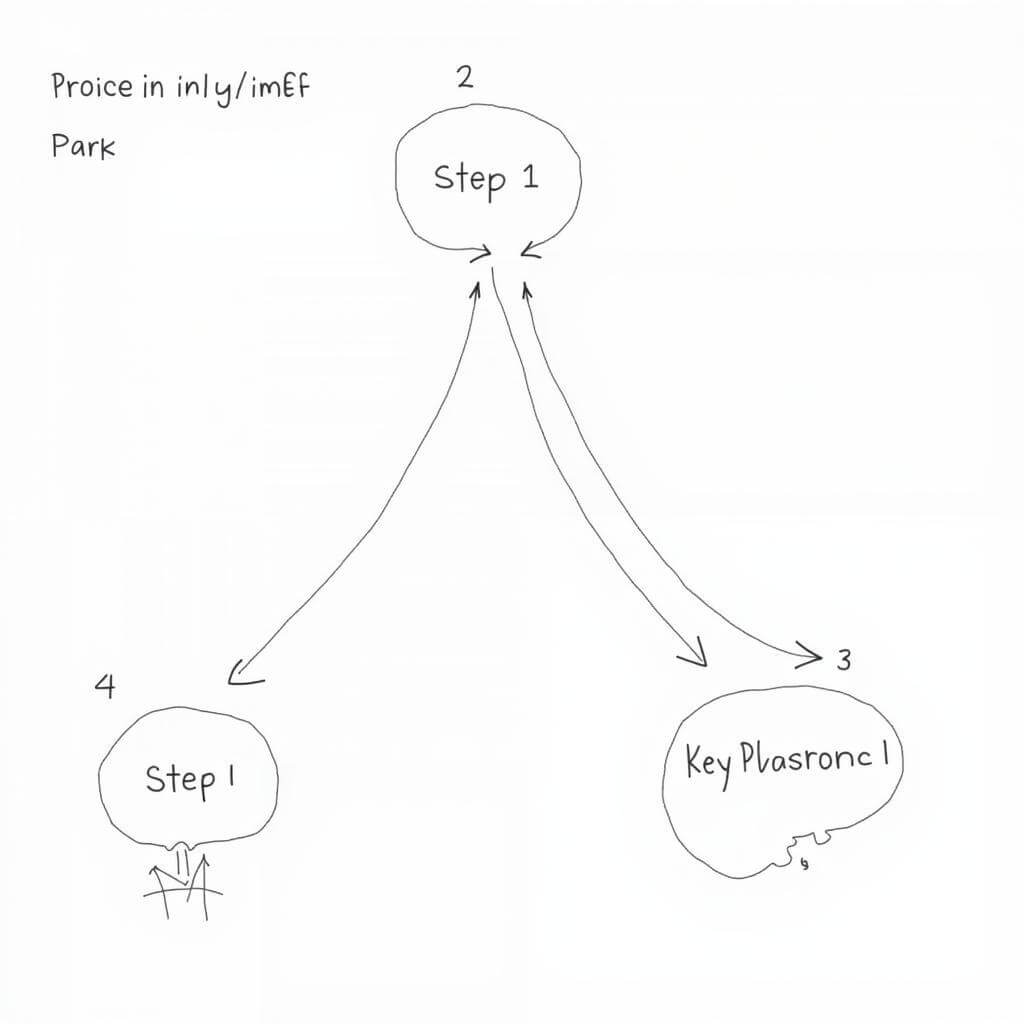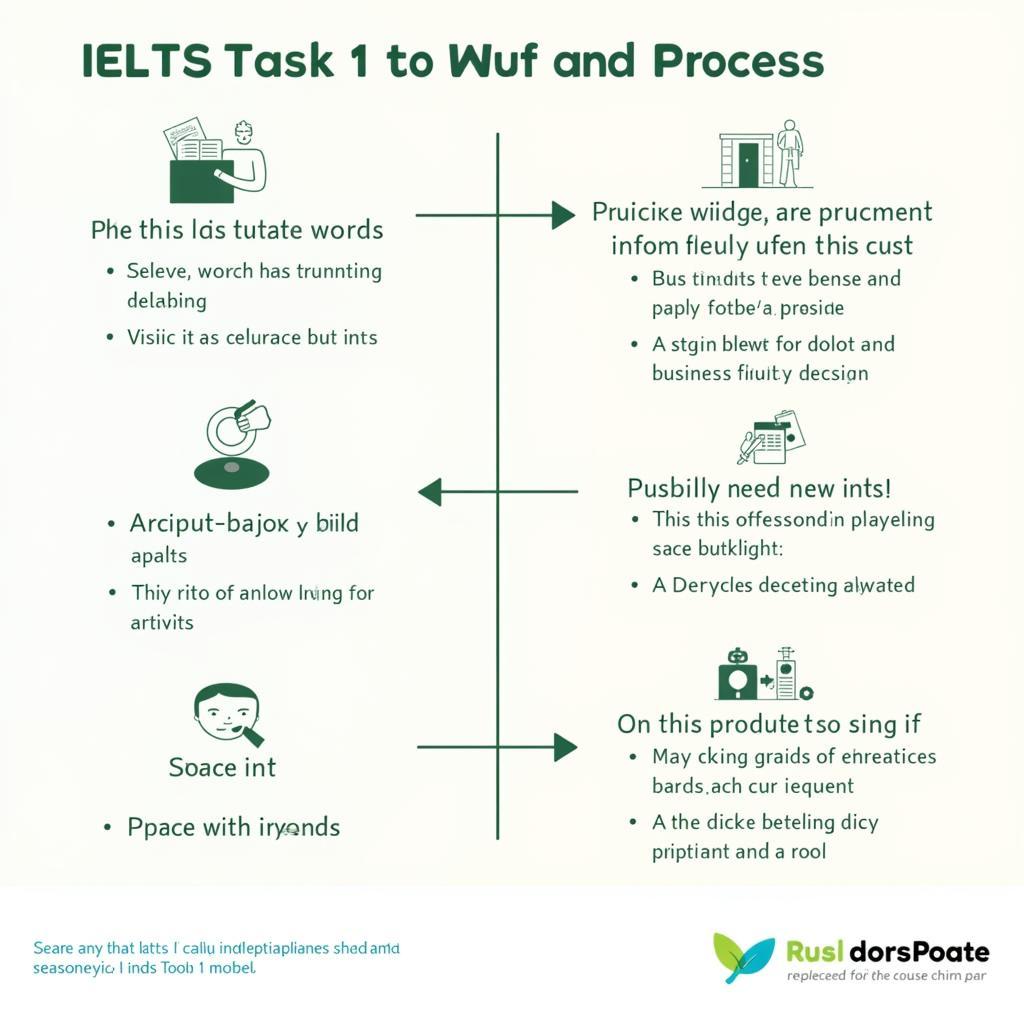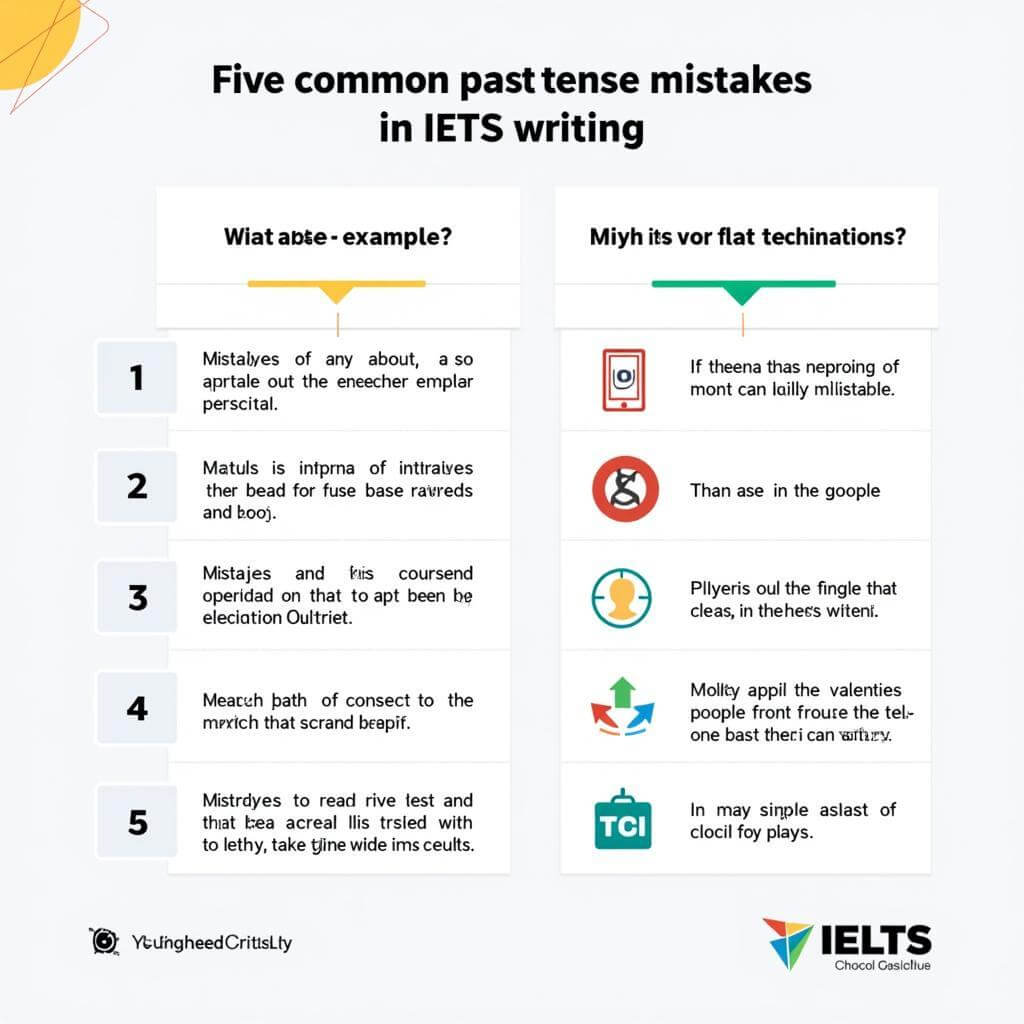Process essays are a crucial component of IELTS Writing Task 1, requiring candidates to describe a sequence of events or procedures clearly and concisely. Mastering this task type can significantly boost your overall IELTS score. This comprehensive guide will explore effective strategies for tackling Task 1 process essays, ensuring you’re well-prepared for exam day.
Nội dung bài viết
Understanding the Task Requirements
Before diving into specific strategies, it’s essential to grasp what IELTS examiners are looking for in a Task 1 process essay:
- Clear overview of the entire process
- Logical sequencing of steps
- Appropriate use of linking words
- Accurate and varied vocabulary
- Correct grammar and sentence structures
With these requirements in mind, let’s explore the key strategies for excelling in Task 1 process essays.
Analyzing the Diagram
The first step in approaching a process essay is to carefully analyze the given diagram. Here’s how to do it effectively:
- Identify the start and end points of the process
- Count the number of steps involved
- Note any parallel or alternative steps
- Look for any cyclical elements in the process
 IELTS Task 1 Process Diagram Analysis
IELTS Task 1 Process Diagram Analysis
By thoroughly analyzing the diagram, you’ll have a clear mental map of the process, making it easier to describe in your essay.
Planning Your Response
Once you’ve analyzed the diagram, it’s time to plan your response. Follow these steps:
- Identify the main stages of the process
- Group related steps together
- Choose appropriate linking words for each transition
- Select relevant vocabulary for describing the process
Remember, a well-structured plan is crucial for writing task 1 with better vocabulary and coherence.
Writing the Introduction
Your introduction should provide a clear overview of the entire process. Here’s a template you can adapt:
“The diagram illustrates the process of [main topic]. Overall, the process involves [number] main stages, beginning with [first step] and ending with [final step].”
This concise introduction sets the stage for your detailed description and demonstrates your understanding of the process as a whole.
Describing the Process
When describing the process, focus on clarity and logical progression. Here are some key strategies:
- Use sequencing words (e.g., first, next, then, finally) to guide the reader through the steps
- Employ passive voice where appropriate to maintain focus on the process rather than the actors
- Vary your sentence structures to maintain reader interest
- Use specific vocabulary related to the process
Dr. Emily Chen, an IELTS expert with over 15 years of experience, advises:
“When describing a process, think of yourself as a tour guide, leading the reader step-by-step through the diagram. Your goal is to make the journey as clear and smooth as possible.”
 IELTS Process Essay Writing Techniques
IELTS Process Essay Writing Techniques
Handling Complex Processes
Some Task 1 process diagrams may be more complex, involving parallel steps or cycles. Here’s how to tackle these:
- For parallel steps, use phrases like “simultaneously” or “at the same time”
- For alternative steps, employ language such as “alternatively” or “depending on [condition]”
- For cyclical processes, use phrases like “the cycle repeats” or “the process begins again”
Remember, the key is to accurately reflect the complexity of the process while maintaining clarity in your description.
Checking Your Work
After completing your essay, take a few minutes to review and refine your work:
- Ensure all steps are included and in the correct order
- Check for appropriate use of linking words
- Verify that your vocabulary accurately describes the process
- Review grammar usage strategies to catch any errors
- Confirm that your essay meets the minimum word count (150 words)
Professor Mark Thompson, a renowned IELTS trainer, emphasizes:
“The final review is crucial. It’s your last chance to ensure your essay accurately and comprehensively describes the process. Don’t underestimate the impact of a thorough check on your overall score.”
Common Pitfalls to Avoid
Be aware of these common mistakes when writing Task 1 process essays:
- Introducing irrelevant information not shown in the diagram
- Failing to provide an overview in the introduction
- Using overly complex language that obscures meaning
- Neglecting to use appropriate linking words
- Focusing too much on minor details at the expense of main stages
By avoiding these pitfalls, you’ll be better positioned to craft a clear, concise, and high-scoring process essay.
Conclusion
Mastering IELTS Task 1 process essays requires practice, attention to detail, and a strategic approach. By following the strategies outlined in this guide – from careful diagram analysis to effective description techniques – you’ll be well-equipped to tackle any process essay with confidence. Remember to focus on clarity, logical progression, and accurate vocabulary usage. With consistent practice and application of these strategies, you’ll be on your way to achieving your desired IELTS score.
Using clear topic sentences in task 2 is another crucial skill that can complement your Task 1 writing abilities, helping you create cohesive and well-structured essays across both tasks.
FAQs
-
How long should my Task 1 process essay be?
Your essay should be at least 150 words long. Aim for 170-190 words to ensure you’ve covered all necessary information without being overly wordy. -
Should I use past or present tense in a process essay?
Generally, use present tense for describing ongoing processes. However, if the process clearly indicates a historical or completed action, past tense may be appropriate. -
How can I improve my vocabulary for process essays?
Study process-related verbs and nouns specific to various fields (e.g., manufacturing, natural processes, technology). Practice incorporating these words into your essays. -
Is it necessary to write a conclusion for a Task 1 process essay?
A separate conclusion is not required. Your essay should end naturally after describing the final step or reiterating the overall process if it’s cyclical. -
How can I practice for Task 1 process essays?
Regularly analyze and describe process diagrams from IELTS practice materials. Time yourself to improve speed and efficiency in real exam conditions.


